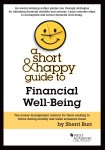by Sherri Burr
In May 2009, I took a research trip to France that included a trip to the French Open tennis tournament at Roland Garros. At the time, I was putting the finishing touches on a book chapter called “Athletes as Television Celebrities: Why we watch, How they benefit, Must they be responsible.” I love watching athletes at the top of their game and feel they have much to teach writers about discipline, preparation and the head game or mind-set of a champion.
Tip 1: Discipline
Webster’s Dictionary defines discipline as “to train or develop by instruction and exercise [especially] in self-control.” Tennis stars Venus and Serena Williams and Raphael Nadal became stars in their sport because they trained and developed their talent and skills to a level of perfection that permitted them to overwhelm opponents. One of the challenges is to keep that up after you have obtained a certain level of success.
All of these players struggled in their opening rounds of the French Open as they faced other individuals who were developing their game, wanted to win, and had the discipline to practice, practice, practice. Nadal eventually lost to a Swede named Robin Soderling who thought of him as just another player and exploited the fact that Nadal was not disciplined about his game in the early rounds. The Williams sisters also lost well before reaching the championship round when they showed up with limited preparation to play on the red clay of Roland Garros.
Similarly, writers must be disciplined about developing talent and continuing to exploit it. Just as there can be one grand-slam wonders in tennis, there are a lot of one-book authors. The trick is to keep plugging away. Authors like Tony Hillerman did not start out on the best sellers list. Nor did he write one book and decide to rest on his laurels. Rather, he loved what he did and kept plugging away. Even toward the end of his life, Tony was trying out new plot ideas on friends.
Tip 2: Preparation
Athletes must constantly prepare. They smash balls with hitting partners before their games, study their opponent’s game, and make themselves as physically fit as possible to endure long matches. As writers, we must master our craft. I recommend attending workshops and classes even when you consider yourself an accomplished talent. Be open to learning from different genres. Although I write nonfiction, I once attended an 8-week novel writing class. This class was helpful when I wrote my memoir Living with New Nephew.
Tip 3: The Mental Game
While discipline and preparation are important, star athletes must also have their mental game operating at its peak. The mental game requires belief that you can win and the ability to calm yourself and keep plugging away when you don’t win a point or match as quickly as you’d like.
The number-one ranked female tennis player going into the 2009 French Open was Dinara Safina, a lumberjack-looking 23-year-old Russian who never won a grand slam tennis tournament despite being in three finals. Physically, Safina looks like she can overpower any player with her 6’0″, approximately 180-pound frame. Mentally, she becomes a wreck when she has to play in the finals for a championship. She chastises herself for missing points. “Why am I such a chicken?” she openly asked at the French Open championship.
As writers, we cannot afford to be like Safina. There are enough critics in the world. Rather than become your top critic, become your most important supportive coach. Tell yourself that you can write that article or book. If your dream is to become a published author, then create a business card that says your name followed by the word author. You have to believe it before you can make it a reality.
The bottom line is that to succeed as a writer requires discipline, preparation and a strong mental game. In other words, writers can benefit from adopting an athletic mind-set.
 Sherri Burr is the Regents’ Professor of Law at the University of New Mexico School of Law where she teaches Entertainment Law, Intellectual Property Law, and Art Law. A graduate of Mount Holyoke College, Princeton University, and the Yale Law School, she has authored or co-authored twenty books, including A Short and Happy Guide to Financial Well Being (West Academic, 2014). Sherri is also a long-time member of SouthWest Writers and a regular contributor to the organization’s newsletter SouthWest Sage.
Sherri Burr is the Regents’ Professor of Law at the University of New Mexico School of Law where she teaches Entertainment Law, Intellectual Property Law, and Art Law. A graduate of Mount Holyoke College, Princeton University, and the Yale Law School, she has authored or co-authored twenty books, including A Short and Happy Guide to Financial Well Being (West Academic, 2014). Sherri is also a long-time member of SouthWest Writers and a regular contributor to the organization’s newsletter SouthWest Sage.
This article was originally published in the September 2009 issue of SouthWest Sage and is reprinted here by permission of the author.


